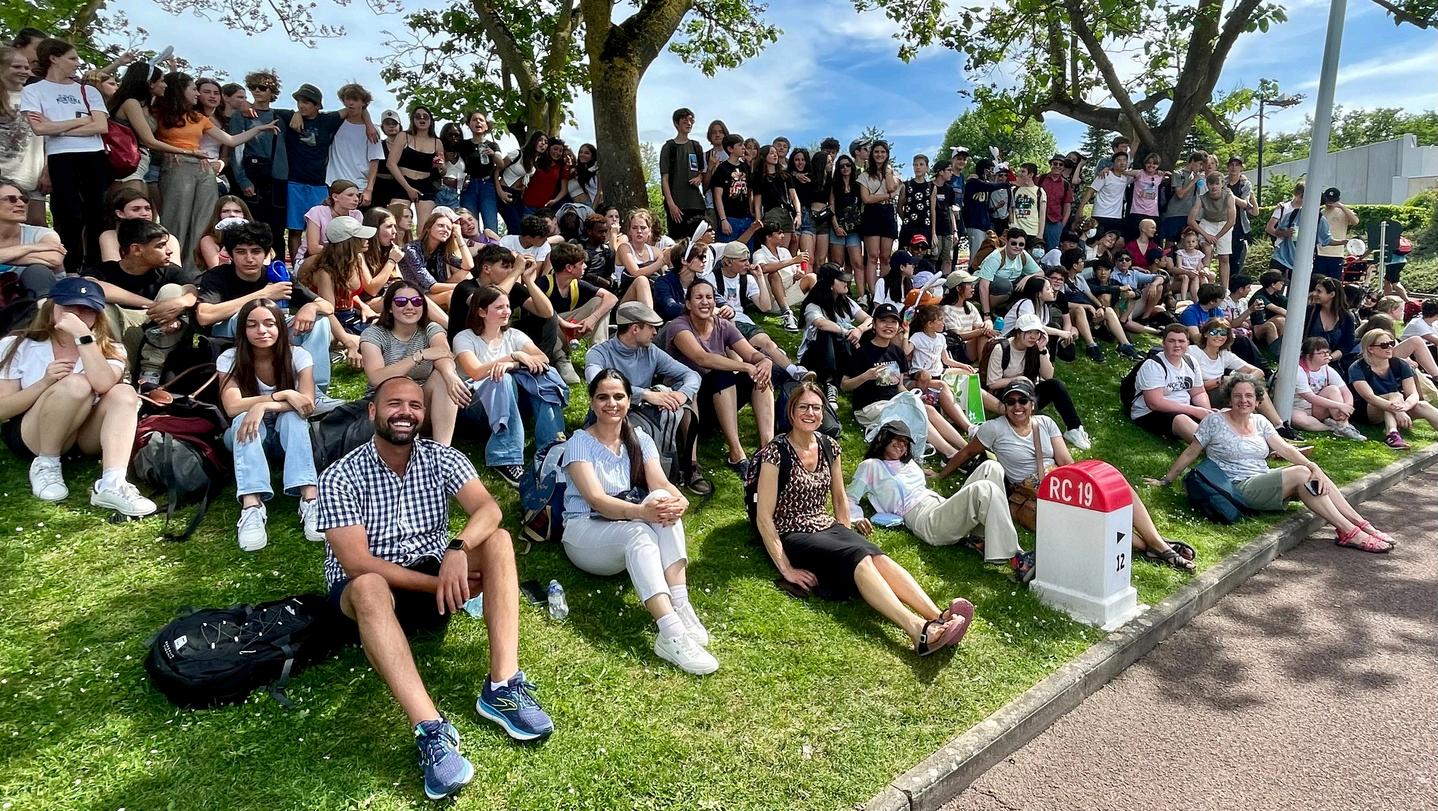






Introduction
Purpose of School Trips
Principles of School Trips
Accountabilities
The Trip Leader
The Chaperone
The Student
Financial & Insurance Aspects
Athletics Trips & Handbook
International Award Protocols
Taking students on a school trip is a significant responsibility. This handbook is designed to help you with all aspects of planning and implementation. Both trip organisers and chaperones need to read this handbook carefully and follow the outlined policies and procedures.
This handbook covers all school trips organised at The International School of Brussels These include:
Day trips for a class or subject area to support the curriculum
Extended field trips for a grade level (3-9)
Outdoor Education Programme trips linked to the Extracurricular Programme
Athletics trips involving student athletes travelling to away games & tournaments
Subject-specific trips – for example, London Drama Trip or Performing Arts Trip
Evening trips to theatre or art events directly supporting the curriculum Service Learning trips

To provide authentic, experiential learning opportunities in accessible, safe locations that support our curricular and extracurricular school programmes in the local community and beyond. School trips give students tangible and hands-on experiences that provide a meaningful, enhancing context for their learning To support ISB’s goals of developing Independent Learners and International Citizens by making clear connections to curriculum content and / or the development of dispositional skills. The learning purposes of trips should be well defined and made explicit to students, parents, and chaperones.
Each school trip must:
Provide sufficient learning value to justify departure from the school setting
Place student safety and security as a priority in both planning and implementation
Provide learning experiences that cannot be achieved through a virtual medium
Be practically feasible, i.e. of reasonable expectation in terms of content, travel distance, and cost
Take into account and respect the possible loss of learning time in school
Be planned for maximum economic efficiency, including prior approval in the school’s budget and consideration of cost, including the cost of substitute teachers.
Be approved by the Head(s) of Division of the students travelling (in the case of scheduled sports events, by the Athletic Director)

One staff member, identified as the Trip Leader, is accountable for all aspects of the trip, and assumes responsibility for organising the trip and for all major decision-making during the duration of the trip. There may be a Co-Leader who supports this individual. The Trip Leader ensures that the following details are planned and implemented:
1 LEARNING PURPOSE
The Trip Leader ensures that a clear learning purpose has been articulated for the trip. This is necessary in advance for trip approval. The learning purpose is clearly connected to the curriculum and explicitly communicated to students and parents
2 ADVANCE PLANNING
The Trip Leader ensures that the trip details have been carefully planned and that the destinations and sites to be visited have been checked in advance for their safety, appropriateness, etc. In the case of all trips, a risk assessment must be conducted before a trip is undertaken The trip leader should meet with the health office prior to the trip in order to discuss any students with medical alerts. First aid kits need to be requested at least 5 days in advance by sending an email to health@isb.be.
Sample Risk Assessment Risk Assessment Template
3. FINANCE & INSURANCE. The Trip Leader ensures that all school policies and procedures with regard to financial transactions and insurance requirements are complied with : School accidents
. The Trip Leader ensures that all travel arrangements are made The following considerations must be respected: (a) the cost of travel must be included in the Sections’ general field trips budget (budget line 613005) and the associated specific trip budget, and must be approved in advance by the Section Head; (b) consideration must be given to the amount of time to be spent on travel; (c) no overnight travel by road is permitted for safety reasons; (d) bus requests must be made
The process for ordering buses is as follows:
An event request form is submitted by the Trip Leader via this link
The Trip Leader clicks on the box requesting a bus service Once this is done, additional information fields will appear and these will need to be completed by the Trip Leader.
The Events Coordinator then sends a confirmation email to the Trip Leader confirming that the trip has been published on the relevant calendars on the portal (external) and on Google (internal)
The Mobility team then contacts bus companies for quotes and confirms the choice with the Trip Leader.
In parallel: the Events Coordinator contacts the Security Team to ensure that all security issues are covered for the departure and arrival of the buses.
If the field trip is outside Belgium, please note that the Human Resources Department must be contacted prior to organising any field trip abroad. The date, the destination and number of participants must be submitted and formally approved in order to get appropriate insurance cover.
In case you need bus transport, please use the Event Request Form. You will be required to provide timings for departure and arrival times for both from campus and from field trip premises, as well as number of participants.
Where accommodation is required for a school trip, the trip leader needs to ensure that a suitable venue is reserved and confirmed well in advance The cost of accommodation needs to be factored into the budget for the trip in advance In the case of extended field trips, it is usually essential to book accommodation at least one year in advance.
As in all matters at ISB, the school strives to respect the needs and identity of all students in a supportive context and makes decisions in accordance with the school’s child safeguarding policy
When planning an overnight school trip, the Trip Leader should always meet with the sectional counseling team to discuss the most suitable rooming arrangements for the students concerned. The Counsellor will advise based on knowledge of group dynamics, health, privacy or identity needs.
There may be circumstances in which special rooming requests are made for school trips that involve overnight travel Such a request may be initiated by the student, a parent / guardian, or a Counsellor. A request for consideration of a rooming request may be related to, but not limited to, an issue related to health, identity, or student dynamics. If students are to be separated based on gender, then transgender students should be permitted to room with peers that match their gender identity.
Any requests will be handled on a case-by-case basis and the following procedure will be followed in the order documented
A conversation takes place with the student’s Counsellor by the individual initiating the request
If a proposal for a special arrangement is under consideration, the parents of the student(s) involved are consulted by the counsellor for input. 2.
3.
Students concerned are involved in a conversation on any special rooming arrangement.
4.
The sectional Counseling Team discusses the proposed arrangement with the Trip Leader, the Head and Assistant Head to confirm a decision.
As in all student matters, professional discretion is maintained and student privacy respected appropriately
± It is noted that there may be circumstances and venues where a hostel is not in a position to offer flexible accommodation options. In a situation where a request for a private room in a hotel or hostel is requested, this additional cost may be passed on to the family

meeting with parents is not required However, for extended field trips, outdoor education trips, or exceptional international travel, a meeting should always be arranged with parents so that the trip goals, expectations, itinerary, requirements and rules can be outlined Written communication complemented by an online posting of this communication should be issued to parents for all trips.
7 STUDENT SUPERVISION Students must be fully supervised – within reason – during the field trip. Students should not, for example, be allowed to roam in cities alone or traverse busy roads without adult supervision “Free Time” should always include adequate and active chaperone supervision in an area deemed to be safe.
8. CHAPERONE-STUDENT RATIOS. Adequate supervision must be provided at all times. The ratio operated may vary, depending on the nature of the trip. For ECC / ES trips, faculty chaperones may be supplemented by parent chaperones. The following are the approved ratios:
ECC/ES: 1 adult for every 8-12 students
MS/HS: 1 adult for every 12-15 students
International Award: (Silver / Gold) 1 adult to every 5/6 students; (Bronze): 1 adult to every 10 students
Athletic Trips: 1 adult per team minimum (usually 1 to 10/12 students)
These ratios serve as a guide and may be amended depending on the nature and location of the trip
For all trips, where boys and girls are travelling, a balance of genders among chaperones is required for supervision A trip should never be taken with only one adult present
. The opportunity to chaperone a trip should be openly advertised by email to eligible faculty and staff. The criteria used to select chaperones must be made explicit if a selection process needs to be used In the case of a trip designated for a specific division of the school, the opportunity to chaperone should be provided to that faculty In the case that specialist skills are needed, for example, a mountaineering trip, those skills need to be specified and only individuals with these skill sets can be recruited The divisional Head or Heads should be consulted and notified of selected chaperones and may be involved in the selection process. Faculty and staff supervisors should be asked for permission to chaperone before accepting such a duty.
.The Trip Leader delegates one person per trip (or bus) who is responsible for the first aid kit The chaperone should familiarise himself with the content of the first aid kit prior to the trip, again, the first aid kits need to be requested at least 5 days in advance by sending an email to health@isb.be. The Trip Leader ensures that each chaperone is aware of the appropriate response in an emergency situation. School policy needs to be followed in an emergency situation. Every overnight trip should have at least one trained first aid practitioner in a supervisory role The school strongly encourages all trip chaperones to take first aid training and will provide these opportunities annually. The Trip Leader ensures that the students health details and parents emergency contact info, (as well as students gsm numbers, where pertinent) are available to the chaperones prior to the trip.
. The Trip Leader should always provide a summary review of each trip to the Head. This can be in the form of a conversation. However, should any safety issues be experienced or issues with injuries, these should be documented and related aspects given consideration. Is the field trip site still regarded as safe? Is the destination appropriate? Care should always be taken to consider if the learning objectives of the trip have been met with feedback solicited from both students and chaperones

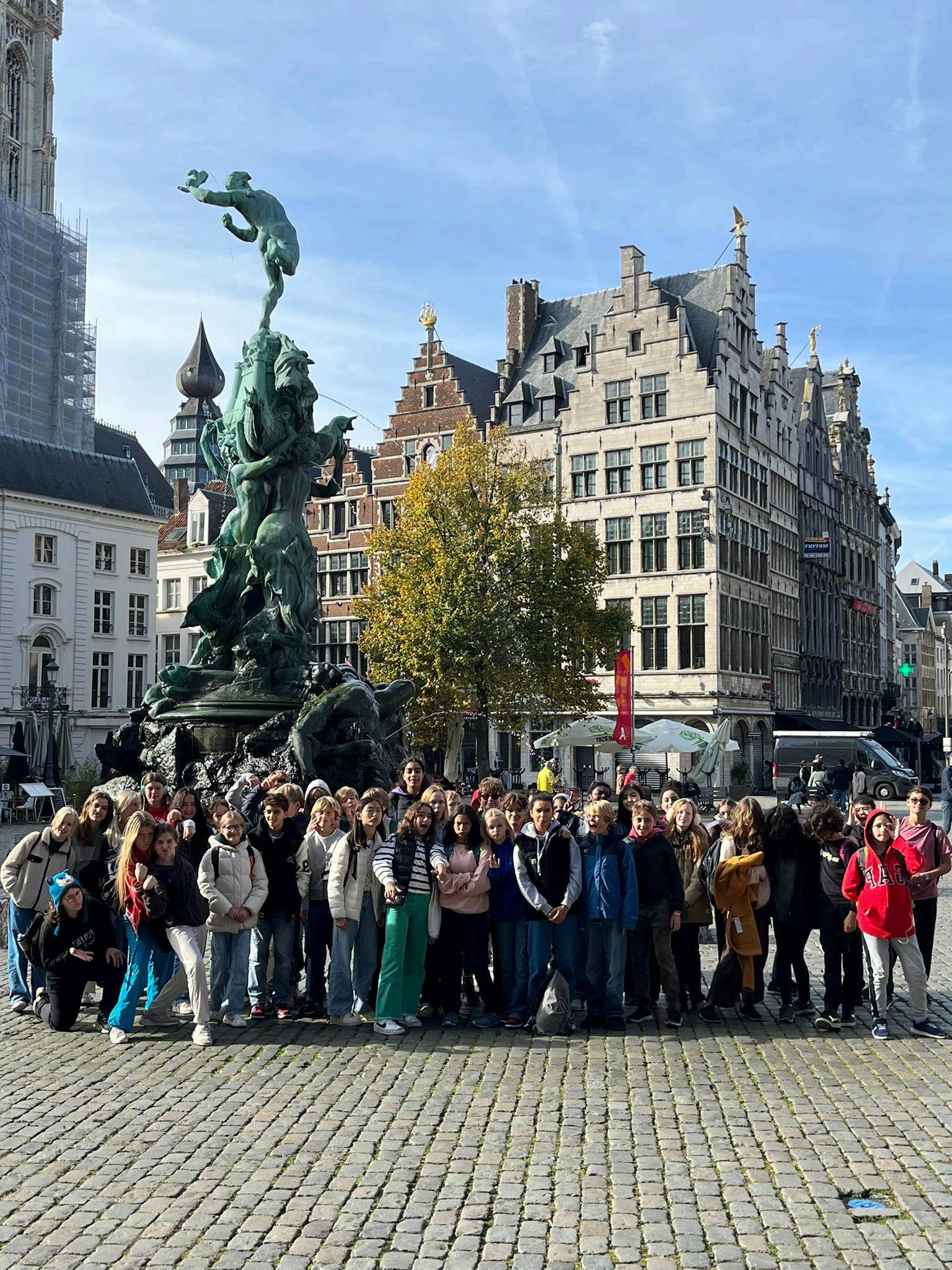
Chaperones need to be familiar with the contents of this handbook. They must know what the rules and expectations are for students, particularly as these pertain to student supervision and safety.Chaperones need to be prepared for the trip as much as possible. They should know what the learning expectations are and acquaint themselves in advance with the destination and pertinent curricular links.

Bus departure and return times must be scheduled to avoid conflicts with school bus arrivals and departures.
Buses are required to be on-site at least 30 minutes before students are expected to arrive
Appropriate identification signs must be placed in the front window of each bus
Students should be notified of the bus they will be taking at least one day in advance
Upon arrival, students must immediately board their designated bus
Attendance and ID checks take place on the buses (if not arranged in advance)
Each bus leader / trip leader must pass on names of students absent prior to departure to the General Office Manager of their division.
The General Office Manager will call the parents of those absent students whose parents have not contacted
If outside the regular school times, return times will be communicated to parents by the trip leader.
Parents are expected to pick up students in a timely manner.
If return times are delayed for any reason, the trip leader will notify Reception. If students are not collected in a timely manner, the Trip Leader may elect to leave the student(s) in the care of the guard at reception or with security.
Role: Each bus has a designated “Bus Safety Chaperone to ensure that exit and entry of the bus is done with safety as highest priority.
First person off or on the bus must check: Is the bus parked safely and correctly? Only the front door should be opened (until it is determined the second “back” exit is safe to be used) Students may never run from the bus, so there must always be a chaperone at each door
Seat belt reminders and checks must take place periodically. Ensure that the first aid kit of each bus is taken off each night upon return to the lodging, and is brought back on the bus each morning
All student passports will be collected and stored (locked) on the bus for the duration of the trip
After every stop, before the bus leaves the area, a count is made of the students. No student may directly ask the bus driver for anything While on the bus, students must ask a teacher if they need something from the driver (example: key to the toilet)
Role: All chaperones actively ensure that movement of the group is done with safety in mind
Ensure that there are chaperones placed in all areas of the group (front, middle, end) Ensure that chaperones are mindful and stationed correctly at crossing points (crosswalks parking lots intersections and potentially dangerous pathways)

Role: All chaperones must be actively involved in the supervision of students
Any free time at hostels or hotels (before and after dinner), chaperones should be out supervising the students This could mean on the beach, in the field, in the courtyard etc. There should be at least one chaperone in each area where students are gathered
The chaperone understands the significant responsibility involved in supervising students in such a setting. For instance, in an overnight field trip situation, the chaperone is effectively on duty 24 / 7 and must be prepared for all eventualities in terms of availability and readiness Chaperones must not be under the influence of any substances – alcohol, drugs, medications – that could interfere with their ability to fulfil their professional duties. Chaperones need to respect the authority and responsibility of the Trip Leader
A form of official identification - Belgian identity card or national passport is required in all instances of travel
Travel outside Belgium for extended field trips requires a certificate of permission to travel signed by the school Director.
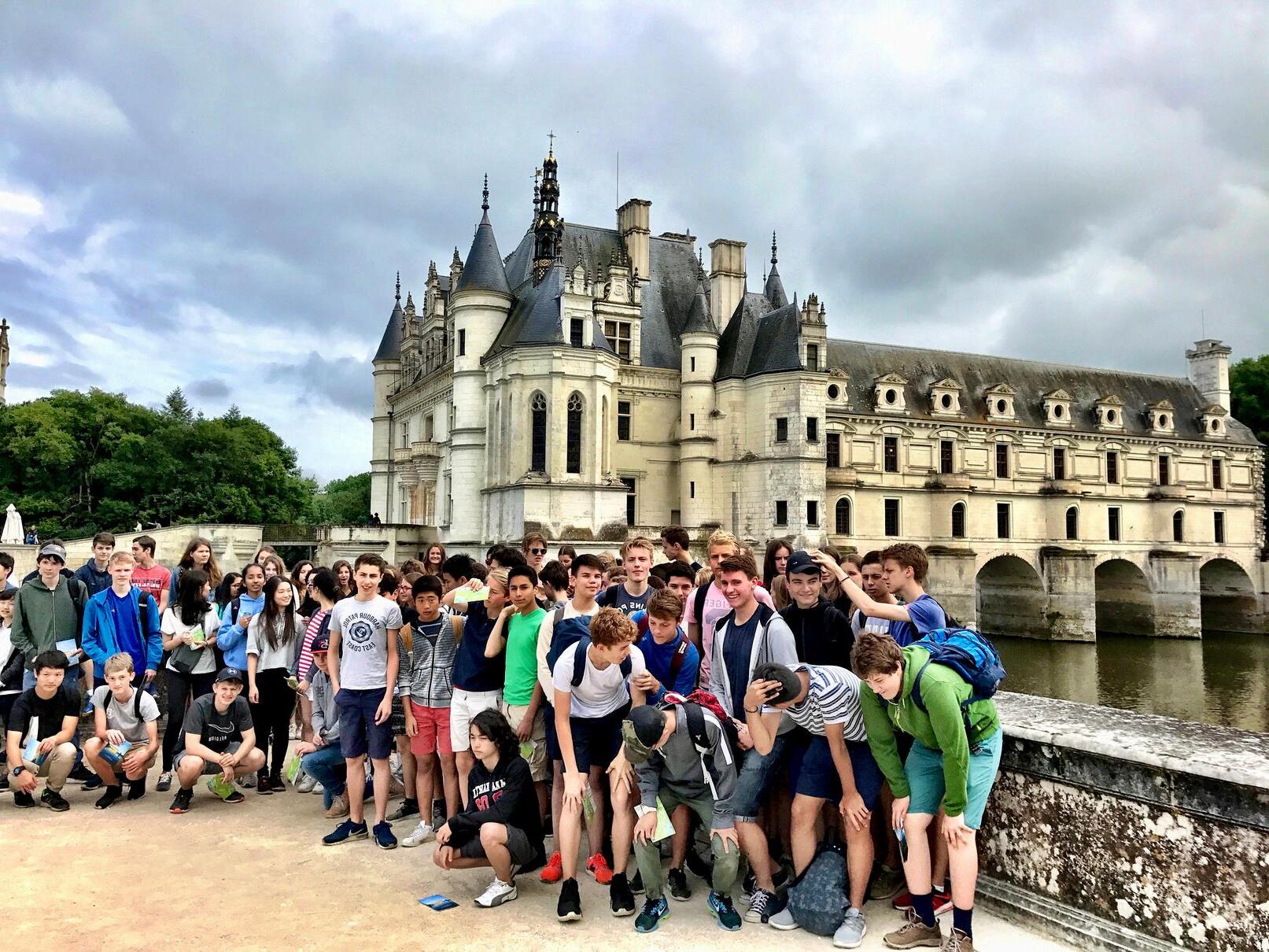
A. Do not move a seriously injured person unless it is a life threatening situation.
B Call 112, giving your name and location Give as much information as possible regarding the nature of the injury or illness, whether or not the victim is conscious, etc. Advise the dispatcher of the injury, if possible, and if the person requires an ambulance You have the option of calling an ambulance directly by dialling 112 if you believe the injury is life threatening.
C. Stay with the victim and attempt to keep him/her as calm and comfortable as possible. Do not move the victim unless necessary to prevent further injury. First aid should only be given to the victim by a trained person. Ensure safety of other students and try to remove them from the scene of the accident to safety.
D. Remain with the victim until an ambulance arrives. Advise the officials on the scene of the nature of the illness or injury. An adult needs to accompany the victim (if under 18 years of age) and stay with the victimuntil the arrival of a parent / guardian.
If the injury happens on the ISB campus, in the event of a non-life threatening scenario, call the Health Office at 02 661 4220 or 02 661 4219. Call 299 or 02 661 4299 outside office hours. If emergency services are required, call 112. Call the parents/guardians after you have called the ambulance.
In Practical Terms:
Ensure the Trip Leader and School Head are made aware of the situation as soon as possible
Decide, in consultation with the Trip Leader and/or School Head, when to notify parents of the incident
Use the school’s insurance documentation and ensure that a “case” is officially opened
If bed bugs are detected during a school trip, follow these steps to contain the issue and prevent further spread.
A. Immediate Actions
Isolate Affected Items
Place infested clothing, backpacks, (and bedding if applicable) in sealed plastic bags to prevent spreading. Keep the affected student's belongings separate from others.
Inspect Surroundings
Check beds, furniture, and luggage for signs of bedbugs (small reddish-brown insects, dark spots, or shed skins).
Notify the hotel or accommodation staff immediately.
Avoid Contact and Spreading
Students should not share clothing, blankets, or personal items. Keep luggage off beds and furniture; place it on hard surfaces or inside the bathtub.
B. Treatment Steps
Treatment for Clothing and Items
If washing is unavailable, seal clothes in plastic bags until they can be laundered.
Clean Luggage & Personal Items
Vacuum suitcases, backpacks, and other belongings. Use a hairdryer or steam cleaner on items that cannot be washed.
Handling Infested Rooms
Notify hotel/accommodation staff immediately so they can take professional measures to treat the room.
Avoid moving infested items unnecessarily to prevent spreading bed bugs to other areas.
Quarantine the room—no one should enter until it has been inspected and treated. Request a different room—ensure it is in a separate area of the hotel to minimize exposure.
Encourage students to inspect the new room for any signs of infestation before settling in.
C. Reporting and Communication
Inform
Notify the Head of School and the Health Office immediately. Parents of all students on the trip will be informed, regardless of whether their child was in an affected room.
A Bed Bug Notification Letter will be sent out, including:
A clear explanation of the situation.
Steps taken to contain and treat the issue.
Prevention measures for when students return home.
Inspect luggage, clothing, and personal items before bringing them inside.
Wash and dry all clothes on high heat, regardless of whether bed bugs were seen. →
Wash clothes in hot water (at least 60°C / 140°F) and dry on high heat for at least 30 minutes.
Vacuum and wipe down suitcases before storing them.
Monitor for bites or signs of bed bugs in the following days.
D. Prevention Measures
During the Trip
Keep luggage off beds and furniture; use luggage racks or place bags on hard surfaces.
Perform a quick inspection of hotel rooms before unpacking (check mattresses, headboards).
Avoid leaving clothing on beds or carpets; store them in sealed bags when not in use.
After the Trip
Unpack luggage outside the home or in an area with hard flooring (avoid bringing bags directly into bedrooms).
Wash and dry all clothing on high heat.
Regularly inspect bedding and furniture at home for any signs of infestation.
By following these steps, we can minimize the risk of bed bug spread, ensure transparency with parents, and maintain a safe, comfortable trip experience.

TThe student also has an important role to play in the success of a field trip
With a clear learning purpose defined, the student should appreciate that he or she needs to actively engage in order to benefit from the trip The student also has an important role in keeping him or herself safe and in contributing to the safety and well-being of those on the trip We expect students to:
Fully engage in the learning activities of the trip
Understand and follow all rules that have been outlined
Play a role in consciously remaining safe and not engaging in unsafe or risky behaviour
Be role models and ambassadors for The International School of Brussels
Report any concern or incident to a chaperone as soon as possible (not to home first)
When the field trip is well prepared, in advance, there are non-cash payment methods available that are preferable to carrying cash on trips: advance payments, upfront invoices, bank cards, etc
As much as possible, the Field Trip organiser of the trip should arrange to make payments in advance for hotels, travel, housing, museums, entrance tickets, etc.
Advance payments can be made in two different ways: through a regular prepayment invoice or through online payment
Contact the supplier and ask for a pro-forma (prepayment) invoice The invoice should mention at least the following minimum legal requirements:
Supplier Name and Address
Supplier VAT number
Invoice date and number
Total amount
Detailed description of the cost
Bank account number
It is very important that all invoices are put out in the name of the school:
The International School of Brussels asbl Kattenberg 19 1170 Brussels Belgium
VAT 0408 698 513
Each invoice must be approved by the Head of the Division. The invoice will follow the normal payment process According to our internal procedures, invoices are processed within five working days.
Currently, museums and attractions offer the possibility to buy entrance tickets online through their official website Often, on-line entrance tickets are sold at a lower price The only thing you need is the school credit card of your division. The credit card, under the name of your Section Head, is available in the GO office
It is very important to take a print-out of each transaction simply because each transaction must be justified and approved by the Head In case you are not sure about the number of participants we would advise you to order for the maximum number of participants. It is much safer for you to order tickets upfront than to run around with cash money in your pockets.
ISB has four Debit cards that can be used either to pay with or to withdraw cash during the field trip NB - these are not Credit Cards.
The Debit cards are not attributed to the sections but can be obtained from the Finance Office Please see this information
Bank Card Requests must be sent to the Finance Office minimum five working days before departure in order to allow proper funding of the underlying bank account. The Bank Card(s) will be at the disposal of the field trip organiser one working day before the trip and the Card(s) must be returned to the Finance Office not later than one working day ft t i f th fi ld t i
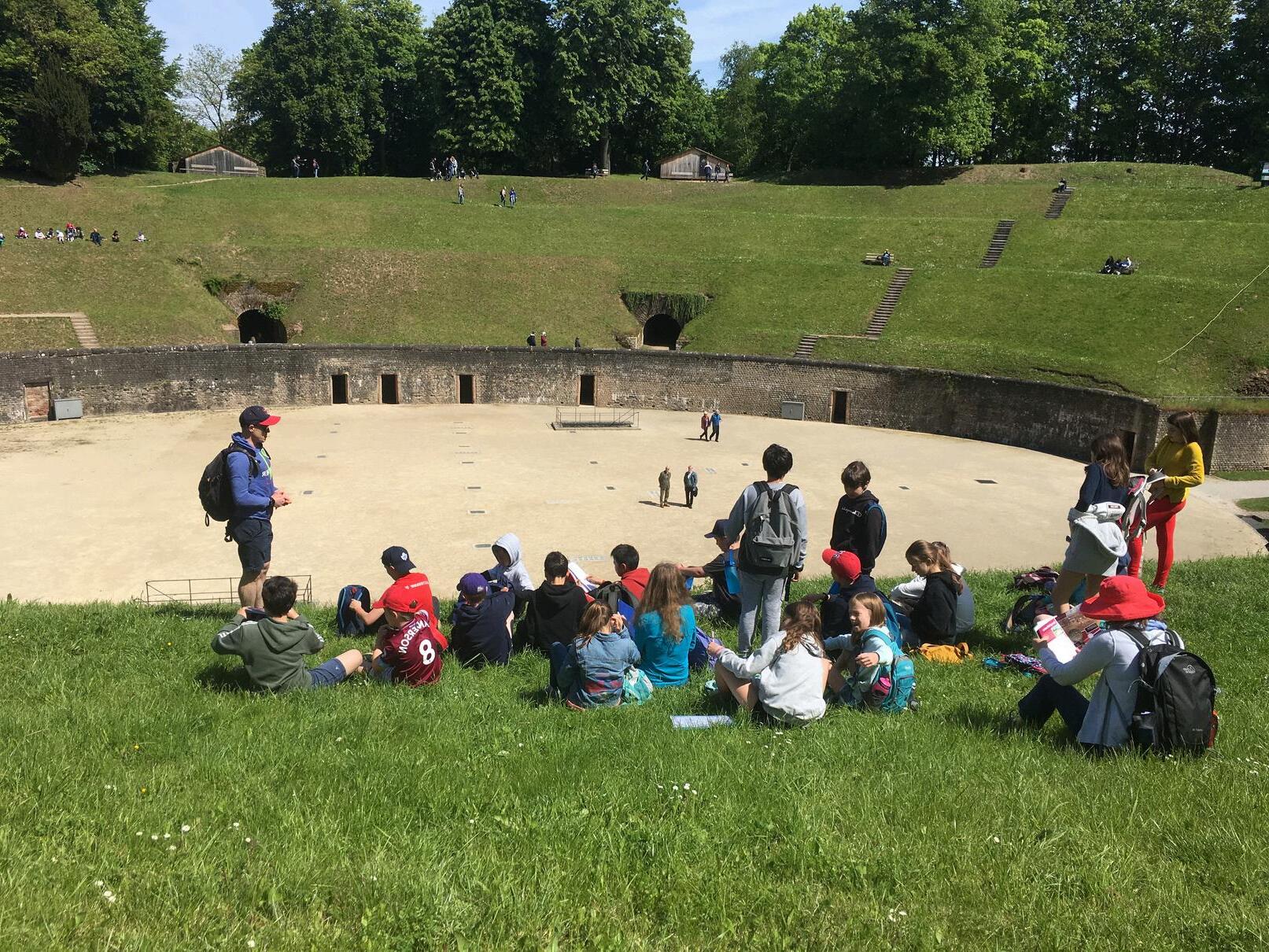
As much as possible, withdrawing money from ATM cash machines should be avoided. (All major expenses would have already been paid for) However, withdrawing cash in the case of emergencies or places that do not accept electronic payments is acceptable.
When an ATM carries the Maestro logo, the machine will usually accept the ISB Bank Card
To check if there is one near your destination, use the ATM locator from the Mastercard website: www.mastercard.com/be/ and click on the ATM locator.
You can withdraw money with a debit card with a maximum of € 650 per day and € 2.500 per week With a credit card, these limits are 620€ every four days.
The Bank Card is generally accepted in Belgium Outside Belgium, the Bank Card can only be used in places carrying the “Maestro” logo.
When you are going on a field trip you can ask for a cash advance. Because most of the payments will have been made upfront, the cash advance will be used for “Emergencies” In order to get the cash advance, we kindly invite you to use this form.
Cash advances are limited to a maximum of 200€. Cash advances for bigger amounts must be justified on the form.
Please note that there is no cash advance for professional development expenses. All expenses will be reimbursed after submitting the Expense Reimbursement Form
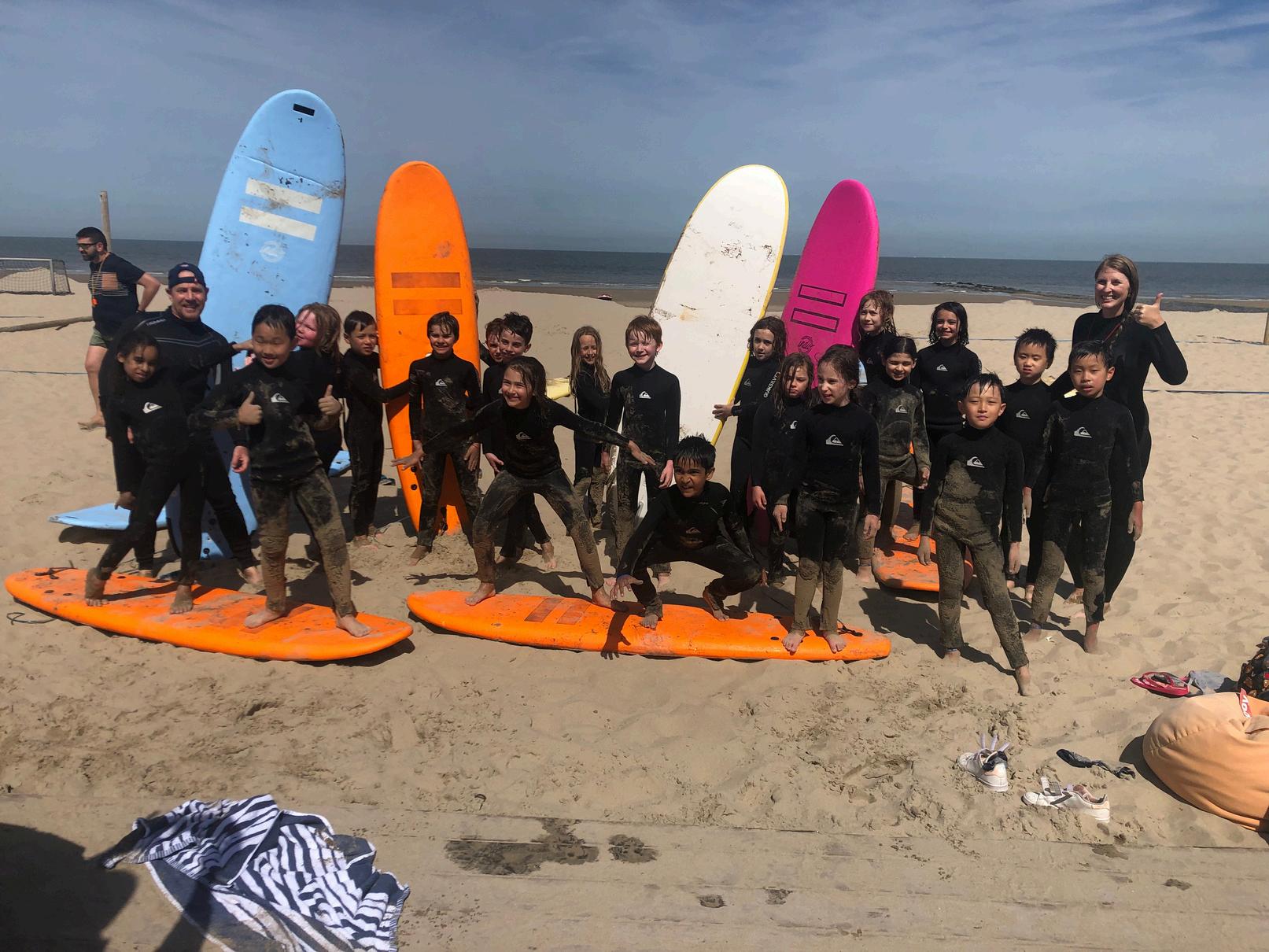
All purchases must be justified and supported by a document. Due to accounting and tax regulations in Belgium, only original supporting documents carrying all legal information will be accepted. When you fail to produce the right documents or the purchase is made for private use, reimbursement will not be processed then the total amount will be deducted from your next month’s net salary.
An acceptable supporting document will show the following information:
Supplier name and address
Description of purchase
Purchase date
Total amount (with and without VAT)
This means that a simple cashier receipt can only be accepted if it is stamped with the supplier information (name, vat number, etc). In order to avoid the loss of documents justifying the expenses, please glue your receipts on an A4 sheet which is then stapled to the Expense Reimbursement Sheet
Please note that in the case of use of any of the above mentioned payments means, the associated expenses will need to be claimed through an Expense Reimbursement Form Full details can be found in the Expense Reimbursement Procedure, available on the shared drive: Finances for Everyone.
Field trips which are part of the curriculum, and therefore mandatory, are included in the tuition fees. Extra-curricular field trips (as distinct from sports trips) are not included in the tuition fees 100% of the total direct costs associated with the students are re-invoiced to the parents ISB bears the costs of the chaperones.
The direct costs are:
Transportation (flight, train, bus, etc), including on-site transportation
Lodging
Meals and drinks
Outdoor activities, including the rental of equipment

During a field trip, students are under the school’s responsibility. In case of accident or illness, all medical costs are covered by the school’s insurance, on top of the parents’ mutuelle and/or private Insurance Repatriation expenses, including search and rescue operations, are covered in case of accident or illness.
For immediate assistance, please call ALLIANZ ASSISTANCE at +32 2 290 61 00 (24/7). The school’s policy number is #30200032 (The International School of Brussels) :
In French press 2, in Dutch press 1
Allianz will record the call, if you agree press 1, if you do not agree press 2
You call to declare an emergency (accident or illness), press 1
You call to ask a question on the policy, press 2
You need medical assistance press 1
It is a new request press 1
It is a request already in process press 2
In case of a doctor’s visit, there are two possibilities: either you have to pay the doctor immediately on the spot or the doctor only asks for the student’s address and will send an invoice later on(you do not have to pay there and then). Please also do not forget to have the medical certificate f signed by the doctor confirming the diagnosis and the prescribed treatment
In case of a serious injury, it is very likely that the patient will betransported to the nearest doctor’s office. These doctor’s cabinet sometimes looks like small clinics where broken limbs are treated immediately Please note that the cost of the treatment can be very high
It is important that you ask the doctor for a medical certificate. In case you have to pay the doctor immediately, please keep the original bill or receipt This will be needed for reimbursement purposes later
If the doctor does not ask for a payment, it is possible that the bill will be sent directly to the parents in Belgium ALLIANZ ASSISTANCE will then reimburse the parents. This will be done once the parents’ have been reimbursed in the first case by their own ‘mutuelle’ and/or private Insurance.
In case of an emergency (accident, repatriation, search and rescue, etc) ALLIANZ must be contacted prior to making any arrangements. ALLIANZ will tell you exactly how to handle the situation and they will make arrangements with you.
The coverage includes the reimbursement of medical costs incurred outside Belgium, as a result of an illness, accident or death 100 % reimbursement of your medical costs with a maximum of 125.000,- euros/year/person (after the mutuelle and/or private insurance’s reimbursements) Please note that repatriation costs and assistance are also included if the arrangements are made by ALLIANZ Assistance. Summary of the coverage offered by ALLIANZ :
Reimbursement of medical costs (abroad) up to 125.000,- euros (after the mutuelle and/or private insurance’s reimbursements);
Medical follow up (in Belgium) up to 6.250,- euros (after the mutuelle and/or private insurance’s reimbursements);
No deductible;
Repatriation if organised by ALLIANZ;
Premature return in case of emergency ;
Search & rescue costs : up to 3.750,- euros; Sending of material in case of emergency (loss) ; Assistance to replace ID card/passport lost or official papers ; Money advance in case of emergency : maximum 2.500,- euros; Assistance in case of legal proceedings ; Reimbursement of “skis pass” in case of illness, accident, death : maximum 125.00,euros, “hors piste” also covered

The general principle is that there is no additional remuneration when chaperoning a field trip. However, the school recognises that certain field trips require extra effort and time from you and that additional compensation is appropriate. Please see the Employee Handbook for more information.
1. Field Trips - part of the curriculum
1.1. Regular Field Trips
A regular field trip is part of the curriculum and usually runs during normal school hours. The fact that the departure and arrival of the trip is scheduled before and after normal school hours does not re-qualify the nature of the field trip.
Examples of Regular Field Trips:
Former deportation camp visit in Breendonk near Mechelen in Belgium
Town visit of Archeon, Netherlands
Visit of the BOZAR museum in Brussels
There is no additional remuneration for this kind of field trip and you are not entitled to claim a per diem. Expenses, such as entrance tickets, will be reimbursed after submitting an approved Expense Reimbursement Sheet.
1.2. Extended Field Trips
The International School of Brussels is known for its Extended Field Trips in ES and MS and they are part of the long-standing tradition and educational provision of the school. Extended field trips are organised for the whole grade and are considered part of the curriculum of that grade. Usually, they run from Monday to Friday but sometimes they might include a Saturday, a Sunday or even a Bank Holiday.
1.2.1. Chaperones Employed by ISB: Stipends
Compensation of €100 gross per day will be paid regardless of the number of days and regardless what day of the week. In other words, in case the extended field trip starts on a Sunday, you will be paid exactly the same amount as for any other day of the field trip. The same rationale applies for Bank Holidays.
Athletics trips follow the same ISB guidelines with regard to student safety, safeguarding, and expectations for students The principles and professional expectations for coaches who work with our student athletes are outlined in the Coaches’ Handbook which can be found here
To maintain the highest level of safety during the expedition, the leadership team and participants will follow the established rules and protocols:
A copy of these sections should be part of the hiking booklet
Award Participants will go over Section A and Section B before each expedition Award Participants should know Section B without any documentation
Students must only travel on the selected route they have previously planned and submitted to the instructors Mild deviation to route can take place in the event of closed paths or roads
Participants will carry a map, route card and a copy of the emergency contact sheet
Original copies will be carried by the leadership team
Fires may only be lit in cases of emergency or with campsite or field owner’s permission
The buddy system is to be in place during the entire trip
Sleeping, cooking and sanitary trips must be done with a minimum of two people at ALL times
The group must carry a first aid kit
The group must carry a cell phone for emergency use only
Participants must not deliberately engage in a high risk activity, jeopardising personal safety or the safety of the group
No alcohol or illegal drugs may be consumed
Leave No Trace principles must be applied for the duration of the trip
The group may not leave the campsite area once they have arrived unless for emergency or evacuation
The group may not purchase anything from shops or farmers for the duration of the expedition unless planned upfront
In the event of any altercation with individuals, or if the group feels threatened or unsafe at any time, the leadership team must be contacted immediately
In extreme weather conditions (e.g.: lightning, storm, winds, and extreme temperatures) shelter must be sought and the leadership team must be contacted immediately for further instructions. If establishing contact with the leadership team, the group must remain where they set up tents and remain in place
B.1 In the case of FIRST AID INCIDENT REQUIRING ASSISTANCE group will:
Assess injury
Contact leaders by use of emergency cell phone
If no cell signal – locate nearest farm / public area by map and minimum of 2 (3 for bronze) students walk there and contact leaders, at least one person should remain in place with the injured party.
If necessary leaders will contact Emergency services
If there is a life threatening situation students should call 112 for emergency help. They should then contact the leadership team immediately.
B.2 In the case of a LOST GROUP MEMBER the group will:
Note down last known area grid reference and time
Shout name and blast whistles to attract attention
Group members will remain in place
Group will remain on the selected route and backtrack to the last known location. If half an hour (30 mins) passes with no contact from a lost group member, the group will contact the leadership team (using first aid steps above.)
B.3 In the case of LOST GROUP (entire):
Group will stop, think, observe and plan as a group
Group will determine the last known point and time (grid ref). The group will plot and keep track of the time on their map as they walk their route
Group will attempt to navigate way back on the selected route and make adjustments if necessary to meet checkpoint time
Group will note down on checkpoint card any deviations taken to selected route and time delays
If the group will be more than 1 (bronze) 1 5 (silver) 2 hours (gold) late for any checkpoint they are to remain in one place, contact the leadership team and wait until located by the leadership team for further instruction
B.4 In the case of MISSING GROUP / LATE ARRIVAL at camp:
Leadership team will wait at camp 1 hour / 1 5 hours (Silver/ gold) before installing a radius search of possible routes / location of group
In the event of lack of communication with the leadership team, bad weather, loss of light, injury (after 2 hours). Pitch tent in suitable area and remain in place until found.
After 5 hours of no contact with the group after missed checkpoint / late arrival at camp, the leadership team will contact Emergency Services (112) and ISB contact person (trip leader).
ISB will contact the parents and keep them informed of the status of the group search via liaison with the leadership team.
At least one person should stay
Crucial point
The x protocol : located here
Plot and keep track of the time on their map as they walk their route
Keep that!
Nbr 2 should know
Absolutely – be able to verbally communicate
APPENDIX 1
Field Trip Information / Permission Form Template
